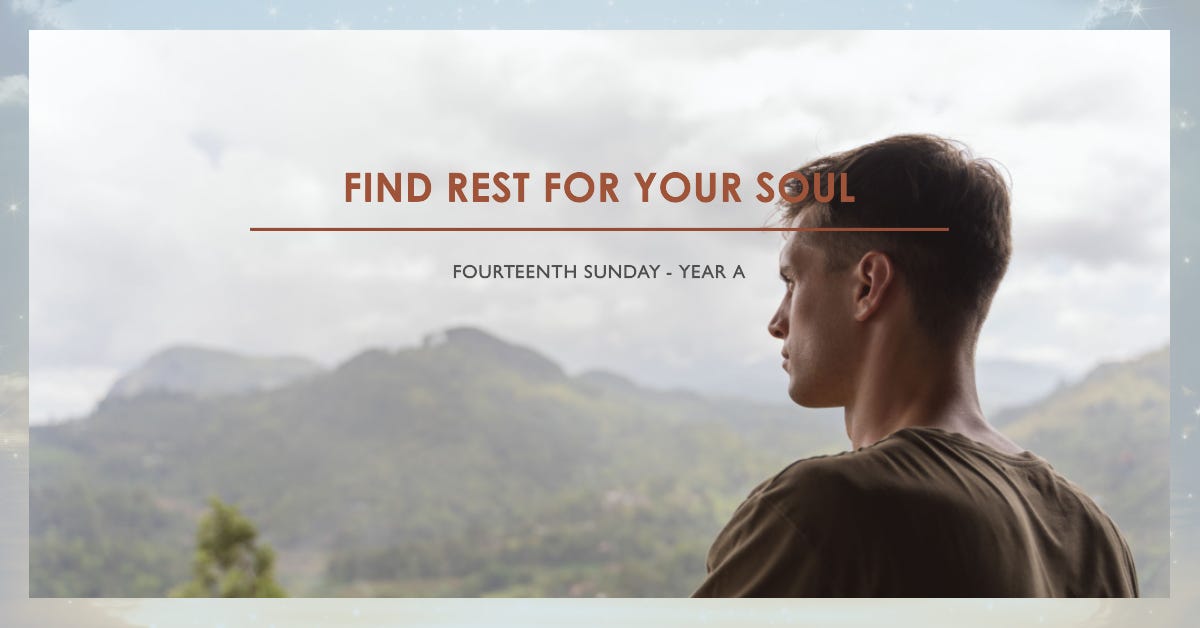Zechariah 9:9-10; Romans 8:9,11-13; Matthew 11:25-30
The Spiritual Exercises of St. Ignatius of Loyola contain a contemplation of Christ the King, who calls everyone to follow him to win the whole world for God's Kingdom. Today we hear a prophecy about a humble king who comes to destroy wars, proclaim peace to the nations and rule over all the earth (Zech. 9:9-10). In that humble king, we immediately recognize Christ the Lord to whom "all those who have judgment and reason" should "offer their entire selves" (St. Ignatius). But is that so?
"I give praise to you, Father, Lord of heaven and earth" (Matt. 11:25). The Father, who took pleasure in his beloved Son (Mark 1:11), also takes pleasure in hiding the mystery of His Son from "the wise and the learned" and revealing it to the "little ones" (Matt. 11:25). On the other hand, the Son - who alone knows the Father - also decides to reveal the mystery of the Father (Matt. 11:27) to the "little ones" - his disciples (John 14:8-11). St. Paul shares a similar experience. Among those who believed in Christ not many "were wise according to worldly standards, not many were powerful, not many were of noble birth" (1 Cor. 1:26). Why?
The Father took pleasure in Jesus, because although in the form of God, he humbled himself and became obedient to the point of death on the cross (Phil. 2:5-8). While entering Jerusalem before his passion (John 12:15), our King of peace did not ride a warrior's chariot but "the foal of an ass" (Zech. 9:9). The Father was also pleased to reveal Jesus to fishermen, tax collectors, and sinners because he "chose what is low and despised in the world, even things that are not, to bring to nothing things that are" (1 Cor. 1:27). What about "the wise and the learned"? St. Paul answers: "If anyone among you thinks that he is wise in this age, let him become a fool that he may become wise"(1 Cor. 3:18).
"Come to me, all who labor and are heavy laden, and I will give you rest" (Matt. 11:28). The best commentary on this verse is the famous statement of Saint Augustine: "You have made us for yourself, O Lord, and our heart is restless until it rests in you." Many of us are at the crossroads, asking for the best way in life (see Jer. 6:16). The one who finds Jesus finds the Way (John 14:8). He alone leads to still waters and restores our souls (Ps. 23:1-3).
"Take my yoke upon you" (Matt. 11:29). Israel knew two yokes: the bitter yoke of slavery and the sweet 'yoke' of obedience to the Torah. We know the bitter yoke of sin (Rom. 8:13) and the sweet 'yoke of grace' (St. Clement of Rome). Although at the beginning obedience to God's law requires hard work, the effort will eventually turn into gladness and bring rest (Sirach 6:21-31). Although Jesus' yoke requires to mortify, with the help of the Holy Spirit, "the deeds of the body", but that effort leads to life (Rom. 8:13).
"Learn from me, for I am meek and humble of heart, and you will find rest for your souls" (Matt. 11:29). Moses was "exceedingly meek" (Num. 12:3 LXX) and David was humble (1 Sam. 18:23). Those two great leaders of the Old Testament had the qualities that we should learn from Jesus. What is so special about them? Conquerers come and go, but the meek remain (Pope Benedict XVI). Their meekness is stronger than any violence and they inherit the land (Ps. 37:11; Matt. 5:5). How about the humble? God gives them his grace (1 Pet. 5:5).
Our meek and humble of heart King of peace calls us to come to him, take up his yoke, and learn from him. "All those who have judgment and reason" should come, because in Christ alone our restless souls can find rest. Will we come?




